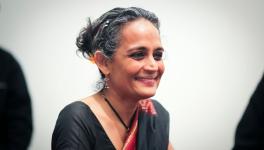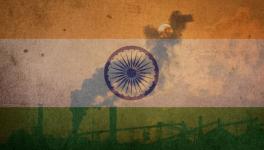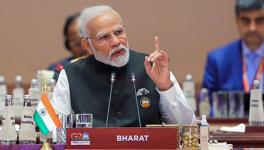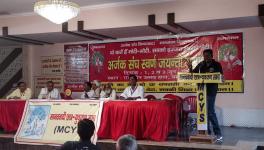How Many Times Will India Deny Apartheid?
Darren Sammy, the famous all-rounder from West Indies, is a legend. He has led his country team and is the only captain to have won two T20 World Cups, in 2012 and 2016. His achievements in the arena of cricket are not limited to his country. He played a singular role in reviving Pakistan’s cricket team and preparing it for international matches, which earned him an honorary citizenship.
And thus the revelation that he was subjected to racial taunts by his own teammates, during his tour to India in 2013 and 2014, while he played IPL matches, was a bolt from the blue. His admirers were naturally aghast when Sammy disclosed that his teammates at SunRisers Hyderabad used to address him with a pejorative term and collectively sneer at him.
On some occasions, Sammy said, he too would smile back at his gleeful teammates, for he had innocently believed that it was light-hearted banter, even though directed at him. Sammy was completely oblivious to the fact that they were targeting him with a racist invective and enjoying “jokes” that he could not comprehend at his expense.
No doubt many of those who subjected him to humiliation were big names in Indian cricket. Yet it did not cause any uproar in India when Sammy made the truth known to the world via an Instagram post. The 24/7 news channels, which are forever searching for sensational news, and the cricketing fraternity, were quiet. None came forward to denounce the humiliation of Sammy, nor was there a public apology from the offenders. Only Swara Bhaskar, the actress, who espouses social causes rather fearlessly, demanded an apology from his teammates.
Now imagine if it was a Virat Kohli who had faced a racist attack in another country. Would the Indian cricketing fraternity and the media have still observed a vow of silence? Quite unlikely.
The fact that he had been racially targeted in India dawned on Sammy by sheer coincidence. He was watching Hasan Minhaj, the popular American stand-up artist, declaim on the Black Lives Matter (BLM) protests in his popular show. As Minhaj described the numerous forms in which racism manifests around the world, he referred to the terms that Sammy had heard his teammates utter at him. “...after I found out a meaning of a certain word...instantly I remembered when I played for Sunrisers Hyderabad, I was being called exactly the same word which is degrading to us black people.”
Even though the truth dawned on Sammy, he did not disclose the names of his abusive teammates. He said instead that he had attempted a conversation with one of his abusers. “I am pleased to say that I have had a really interesting conversation with one of the guys and we are looking at ways to educate rather than focusing on the negatives. My brother reassured me that he operated from a place of love and I believe him.”
[For the record, an old Ishant Sharma Instagram post, in which he had used the same derogatory word for Sammy in the caption went viral on social media around the same time as the disclosures.]
Sammy’s truth has come out at a significant moment in history. The western world recently erupted in unprecedented resistance to racism. Anti-racism protests which started in America last month, have a fair extent of participation by White people as well. This movement seems to have shaken the legitimacy accorded to racism in the West. It has seemingly led to some soul-searching among Americans and others, as reflected in the gatherings led by prominent figures. People have been offering public apologies for having enabled racism. Alexis Ohanian, the co-founder of the social networking site Reddit, who resigned from the board of directors, has urged that it “hire a black candidate in his stead” and promised to direct future gains from the Reddit stock to “serve the Black community”.
Definitely India’s citizenry, elite or not, is rather far from such a soul-searching exercise. While George Floyd was being buried in America, the racist term used to target Sammy was going viral in India. That should make it clear how Indian elites view the Apartheid in their own backyard. Not just one, there are multiple Apartheids in India, based on colour, caste, community and more. That is one reason why hardly anybody felt remorse or condemned the errant cricketers. Instead, people picked up the cudgel on behalf of the racists and, in this way, Sammy ended up being targeted all over again.
The George Floyd moment has exposed the deep-rooted hypocrisy of India’s chattering classes, especially their colour bias. There should be no doubt hereafter that ritualised oppression based on graded hierarchy has broad acceptance and legitimacy in India.
When actors like Priyanka Chopra Jonas, who now lives in the United States, declares support to BLM, her role in promoting colourist beauty standards in her native country went viral. Indeed, she has participated in advertising skin-lightening products in India even long after she won the Miss World contest in 2000 and gained star status. In other words, when she was in India even she actively promoted colour bias.
Perhaps it is Michael Holding, a former Jamaican cricketer and commentator, who diagnoses the problem correctly. He recently wrote, that there is “no single person responsible for systemic racism, and that’s why people have to come together to beat it.” Holding wrote that he has not faced racism in India but is aware of the class and caste system that prevails in the country. “[There is a] lot of bias and prejudice against its own people. I hope that ends,” he wrote. He also wrote about the many Indians who believe that “the fairer the skin, the better you are.”
The insults Sammy faced and the conspiracy of silence which followed, are not isolated instances. After all, there have been a spate of attacks against African students in recent years, and they are refusing to come to an end. The government and police have been insincere in apprehending the culprits of such targeted attacks. Cases are hardly pursued with seriousness, even though some counter-views have demanded that this happen, in cinema and other fields. Governments in India tend to portray racist attacks as episodes related to individual deviants and not a systemic racism problem. There is a conspiracy of silence over this, for very often those who perpetrate racist attacks have openly avowed racism and violence against dark-skinned people, especially foreigners from African countries.
AAP leader Somnath Bharati had referred to African Americans living in a South Delhi locality as drug traders and faced charges of racial discrimination in 2014. A leading Hindutva ideologue, Tarun Vijay, had said that Indians cannot be termed racist as they “live with South Indians”.
Suhash Chakravarty, in his book, The Raj Syndrome: A Study in Imperial Perceptions, says, “The legacy of colonialism perpetuated a national identity of subordinate Indians which still today expresses itself through images of ‘whiteness’ as superior to ‘darkness’.”
Attitudes in India are also shaped by the Varna mindset, which enshrines structural discrimination against the dalits, women and the working classes. In his book, The Untouchables: who were they and why they became Untouchables, Dr Bhimrao Ambedkar tries to reach the root of the problem. He notes that an “old orthodox Hindu does not think that there is anything wrong in the observance of untouchability...The new modern Hindu realises the wrong. But he is ashamed to discuss it in public for fear of letting the foreigner know that Hindu Civilisation can be guilty of such a vicious and infamous system... But what is strange is that Untouchability should have failed to attract the attention of the European student of social institutions.”
One definitely needs to unpack the hierarchical behaviour of Indians and its origin. The animosity towards foreigners of a dark complexion, and towards other Indians who are not fair-skinned, belies the history of colonial plunder that India and many non-White nations share. Racism in India discredits its ability to face the real challenges in the present time: the battle against massive poverty and the discrimination that lies at its roots.
It took Holding, the Jamaican cricketer, to acknowledge that the skin-colour bias is a “left-over from the brainwashing of the colonial era.” Perhaps it is time for Indian elites to accept this and overcome their biases, no matter how deep-seated they are.
The author is an independent journalist. The views are personal
Get the latest reports & analysis with people's perspective on Protests, movements & deep analytical videos, discussions of the current affairs in your Telegram app. Subscribe to NewsClick's Telegram channel & get Real-Time updates on stories, as they get published on our website.
























